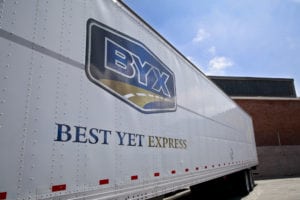Admit it. You’ve driven behind a big rig and wondered how many years you were about to lose off your life. It was poorly maintained and emitted a brown cloud large enough to cover the entire roadway. Alright, most don’t pollute that much, but diesel still isn’t the cleanest fuel around.
However, alternative fuels have progressed rapidly in recent years and may one-day make diesel obsolete. And, that future may be closer than you think. Here’s why.
Increased Production
Shell is working on two liquefied natural gas (LNG) plants and Waller Marine is working on its own. Shell’s LNG plants will be up and running in a bit under three years while Waller Marine’s plant will be operational in a little over a year.
Exxon Mobil is also joining the party from Papua New Guinea. Its LNG plant is set to begin production in 2014.
And, Alaska recently asked ConocoPhillips to reopen its plant on the Kanai Peninsula.
All of this is great news, as natural gas-powered trucks are already on the road and becoming more popular each year.
Rapidly-Growing Alternative Fuel Infrastructure
While there are less than 600 compressed natural gas (CNG) and LNG stations combined, there are still far more than there were a few years ago. These are among the leading fuels the trucking industry has been switching to and, with a growing infrastructure, it appears supply is keeping pace.
Big rigs that run on biodiesel and hydrogen have also been introduced. Add related stations and there are around 900 privately-owned alternative fueling sites available to truckers in the US.
Easy Use of Cellulosic Diesel
Cellulosic diesel is identical to petroleum-based diesel except for one important distinction: it is made from renewable resources. Other than that, it is compatible with the current fuel infrastructure, making it a realistic option as an alternative fuel for trucks.
Barriers
As mentioned, the U.S.’ alternative fuel infrastructure has grown rapidly, but isn’t near the level of traditional fuels just yet. This poses limitations on some trucking businesses, as certain fuels are sparsely available in some areas. However, that will naturally decline as additional stations are built.
Cost is another barrier. Trucks that use natural gas, for example, cost an estimated $40,000-$50,000 more upfront. However, at least in the case of CNG, fuel is much cheaper and could offset those costs over time, especially when combined with grants that are offered in some states.
Final Word
While diesel still reigns, alternative fuels are quickly gaining popularity in the trucking industry. The most common are CNG and LNG, although cellulosic diesel is another potential option. We may be on the verge of a major shift to cleaner alternative fuels as industry and political leaders as well as the general public demand them. The future of alternative fuels in trucking is closer than you think.
The post The Future of Alternative Fuels in Trucking is Closer than you Think appeared first on Best Yet Express, LTL Trucking, Shipping and Freight.






